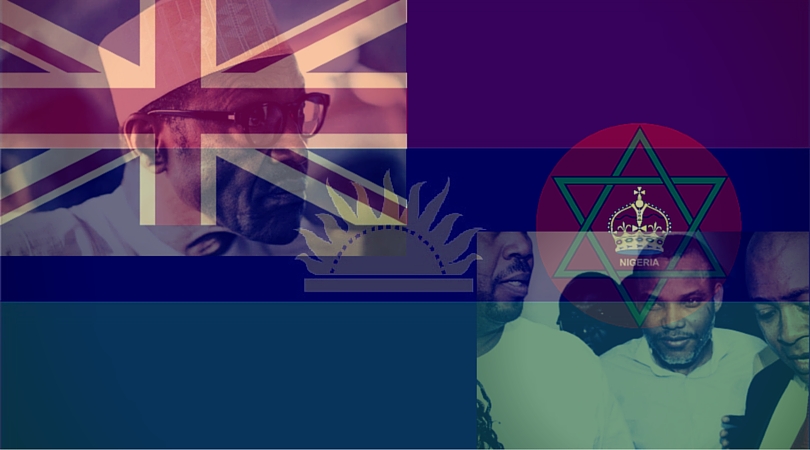Consider the following remarkable facts regarding Israel’s parliamentary history:
1) For 20 of the 28 years between 1977 (when Likud first won the elections on a platform of “Greater Israel”) and 2005 (when a Likud government withdrew unilaterally from Gaza in stark contradiction to its electoral pledges), the Israeli government was headed by a prime minister from Likud.
2) When Likud came to power, not only was the entire Sinai Peninsula under Israeli control, but any suggestion that Israel might evacuate the Jordan Valley was virtually unthinkable, any thought of dividing Jerusalem was tantamount to blasphemy, and any hint of withdrawal from the Golan was almost akin to treason.
3) Yet today, over a third of a century since Menachem Begin’s dramatic electoral victory over the hitherto hegemonic Labor party, all the above are either already widely accepted — even recommended — outcomes by much of the political mainstream in the country. Astonishingly, even the question of the strategically vital Golan Heights, which for several years disappeared from the political agenda because of the gory internal war in Syria, has recently reemerged as an issue for debate, despite the war in Syria.
Win elections; never get into power
These developments clearly demonstrate that, although the parties designated as the “right wing” regularly win elections and manage to form a ruling coalition, they somehow never really get into power, in the sense that they cannot — or dare not — implement the policies they were elected to implement. Worse, they appear coerced to adopt, with varying degrees of reluctance, the policies of their defeated “left-wing” rivals, which they were elected to prevent.
This is a phenomenon that can only be rationally accounted for by the existence of some influence, extraneous to the political system, which imposes on it outcomes that diverge dramatically from those that should be expected from the regular unhindered operation of that system.
Thus, Yitzhak Rabin, who, in 1992 was elected on the basis of a series of hawkish “nays” regarding negotiations with and concession to Yasser Arafat’s terrorist PLO, radically switched his policy mid-term, transforming them all to dovish “yeas,” which begot the Oslo fiasco.
Even more dramatically, Ariel Sharon, elected on a platform of vehement opposition to any notion of unilateral withdrawal, adopted precisely such policy, advocated by his Labor party rival, and rejected by the electorate.
It is difficult to overstate the implications of this phenomenon, which, for all intents and purposes, drains the Israeli democratic process of any significance. After all, it clearly negates the purpose of casting a vote at the ballot box — since, even if one’s preferred party prevails at the polls, the policy soon adopted is that which voters chose to renounce.
Spurious ’causes’
Three claims frequently raised to account for such blatant disregard for electoral pledges must be summarily rebuffed.
The first is that they were the result of international — particularly American — pressure. However, nothing could be further from the truth.
In the case of Oslo, the entire unfortunate process was covertly conceived exclusively by Israelis and Palestinians in remote Scandinavia, without any international coercion. Indeed, deep into the negotiation process, the PLO, cosignatory to the accords that emerged from this ill-considered initiative, was still classified as a terror organization by the U.S. government.
Neither can the disastrous Gaza disengagement be attributed to American, or other sources of external, pressures. Quite the reverse, Washington, initially highly skeptical as to the prudence of unilateral initiatives, had to be actively convinced by Sharon as to the merits of the idea.
The second claim that needs to be dispelled is that these mid-term policy reversals reflect some far-sighted wisdom in dovish policies of territorial concessions and political appeasement that make the post-election abandonment of more hawkish political platforms inevitable. Indeed, one of the most astonishing aspects of the Israeli political system is of ostensibly “hawkish” politicians adopting, once in power, “dovish” policies they previously repudiated. After all, these policies have consistently and continuously proved disastrous failures — making continued adherence to them utterly incomprehensible.
The third spurious claim is that because of Israel’s allegedly dysfunctional electoral system, elected coalitions cannot govern coherently and, to prevent their disintegration, are coerced to make concessions to recalcitrant partners.
However, internal coalition pressures and the exigencies of coalition preservation cannot account for the aforementioned policy decisions, since there were no internal coalition pressures to adopt them. Quite the opposite. Several coalition members, in fact, resigned in protest against them.
Unholy trinity?
So if the most dramatic political initiatives over the last two decades cannot be attributed to international pressure, to the far-sighted “wisdom” of Israeli leaders, to domestic political pressures or the preferences of the Israeli electorate, to what can they be ascribed?
The answer to this critical conundrum is to be found more in Israel’s sociological structure, rather than its political mechanisms.
More specifically, it lies in the composition of its civil society elites: the ones who dictate the tone of Israel’s legal establishment, dominate much of its mainstream media and hold the sway in the country’s academia (particularly in the social sciences and humanities — where the politically correct regularly overrides the factually correct).
These groups comprise an interactive “trinity of influence” that, in effect, dictates much of the socio-political discourse in Israel, which in turn determines how politicians perceive their policy constraints and possibilities. This allows them to set the overall tenor and direction of the national agenda at the strategic level. They manage to inculcate their worldview into the decision-making processes of elected politicians with impressive effectiveness and manipulate the perceptions of the general public as to the prevailing political realities the country faces.
Accordingly, from their unelected position of privilege, power and prestige, this trinity of elites has both the ability and the motivation to impose on the elected incumbents an agenda that diverges significantly from electoral pledges — and from the promotion and preservation of the long-term national interest.
Seeking approval of peers abroad
Thus, for example, the legal elite can impede any assertive initiative that the elected polity may wish to implement. Similarly, the media elite can promote any concessionary initiative that the elected polity may be loath to implement. And when the stamp of professional approval is required for either, the amenable and biased academic elite is ever-ready to provide it.
It requires little analytical acumen to identify that these were the mechanisms that, in large measure, generated — or at least facilitated — most of the major political processes over the last two decades. Accordingly, the ability to understand the political realities in Israel is contingent on understanding the worldview and the cost-benefit analysis of these powerful and influential elites.
For them, the approval of peer groups abroad is far more important in determining their agenda than the approval of Israeli citizens at home. Invitations to deliver keynote speeches at high-profile conventions, sought-after appointments as visiting scholars at prestigious institutes and lucrative grants for research projects are far more forthcoming if one is identified as empathetic to the Palestinian narrative rather than as committed to the Zionist one.
Far-reaching effects
This reality has far-reaching effects.
For example, it prevents Israeli public diplomacy — largely under the sway of these elites — from portraying the Arabs in general, and the Palestinians in particular, as they truly are. After all, such an assertive portrayal would make the dominant elites’ worldview look outrageously irresponsible. They are thus compelled to depict the Arab/Palestinian side in a far more favorable light than reality warrants, while portraying the Israeli side in a far more negative one — otherwise there would be no justification in handing over areas of vital strategic importance to Arab/Palestinian control.
After all, to acknowledge Arab brutality and backwardness, to focus on the repression of women, the suppression of dissidents, and the oppression of homosexuals; to draw attention to the harassing of critical journalists and the hounding of political opponents, would gravely undermine the prudence of any policy advocating the establishment of a Palestinian entity barely a mile from the Knesset, overlooking Ben-Gurion International Airport, and adjacent to the Trans-Israel Highway.
Danger to democracy
The gravity of the consequences that the imposition of elite political preferences has on Israeli policy, and the debilitating effect it will inevitably have on the democratic process, cannot be ignored. These dramatic minority elite-induced policy reversals constitute a powerful disincentive for taking part in the electoral process — indeed, for even considering it of any worth at all.
After all, what is the point of voting any party or person into power if they end up implementing precisely what was rejected by the voters? And once the electorate loses faith in democratic governance, what is there to prevent the onset of “alternative” forms of governance?
(Originally Published on Israel Hayom)




